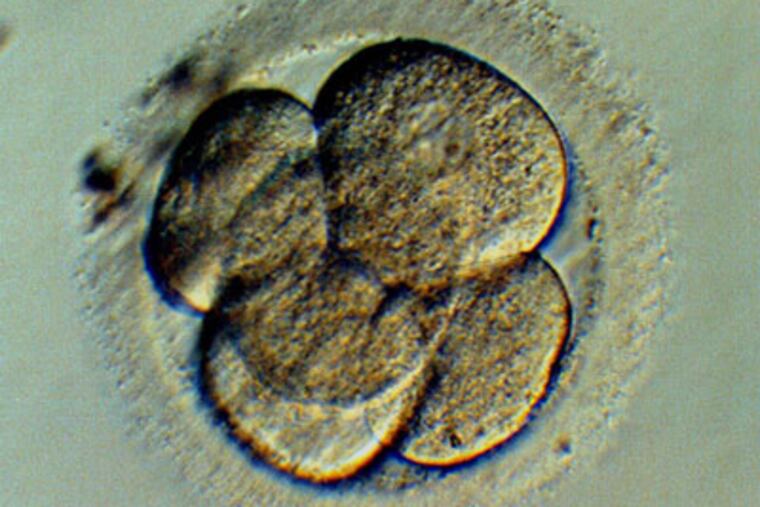Woman awarded frozen embryos ex-husband wanted destroyed
A Pennsylvania appeals court has upheld a lower court' ruling in a Chester County divorce case awarding a woman frozen fertilized eggs her ex-husband wanted destroyed.

A Pennsylvania appeals court has upheld a lower court' ruling in a Chester County divorce case awarding a woman frozen fertilized eggs her ex-husband wanted destroyed.
In a decision handed down this week, a three-judge Superior Court panel said the dispute could have been avoided if the couple had signed an agreement on what do with the so-called pre-embryos in the event of death or divorce or if the General Assembly had passed a law addressing the issue.
The couple, Lynn Reiss and Bret Howard Reber, took the steps to prepare for in vitro fertilization after she was diagnosed at age 36 with breast cancer in November, 2003, according to court documents. The result was 13 pre-embryos using his sperm and her eggs.
Reber filed for divorce in December 2006 and later fathered a child with another woman.
Believing she could not have children because of her medical treatments and her age, Reiss sought the pre-embryos in the division of marital property, the decision recounts.
Last May, the Court of Common Pleas in Chester County awarded them to Reiss.
"Because Wife cannot achieve genetic parenthood otherwise, we conclude that Wife's interest in biological procreation through the use of these pre-embryos outweighs Husband's professed interest against procreation," the court said the decision affirmed by the appeals court.
The Superior Court noted that Reiss had promised not to seek child support in the event any of the embryos is born, but said it could not compel her to do so and that the issue could again end up in court.
The court said Reber's argument that it was against Pennsylvania public policy for him to be forced to "procreate" with his ex-wife does not stand because the law is silent on the issue.
"This situation, in some states, has moved from the state courts to the state legislatures," the Superior Court said. "However, unless and until our legislature decides to tackle this issue, our courts must consider the circumstances of each case."